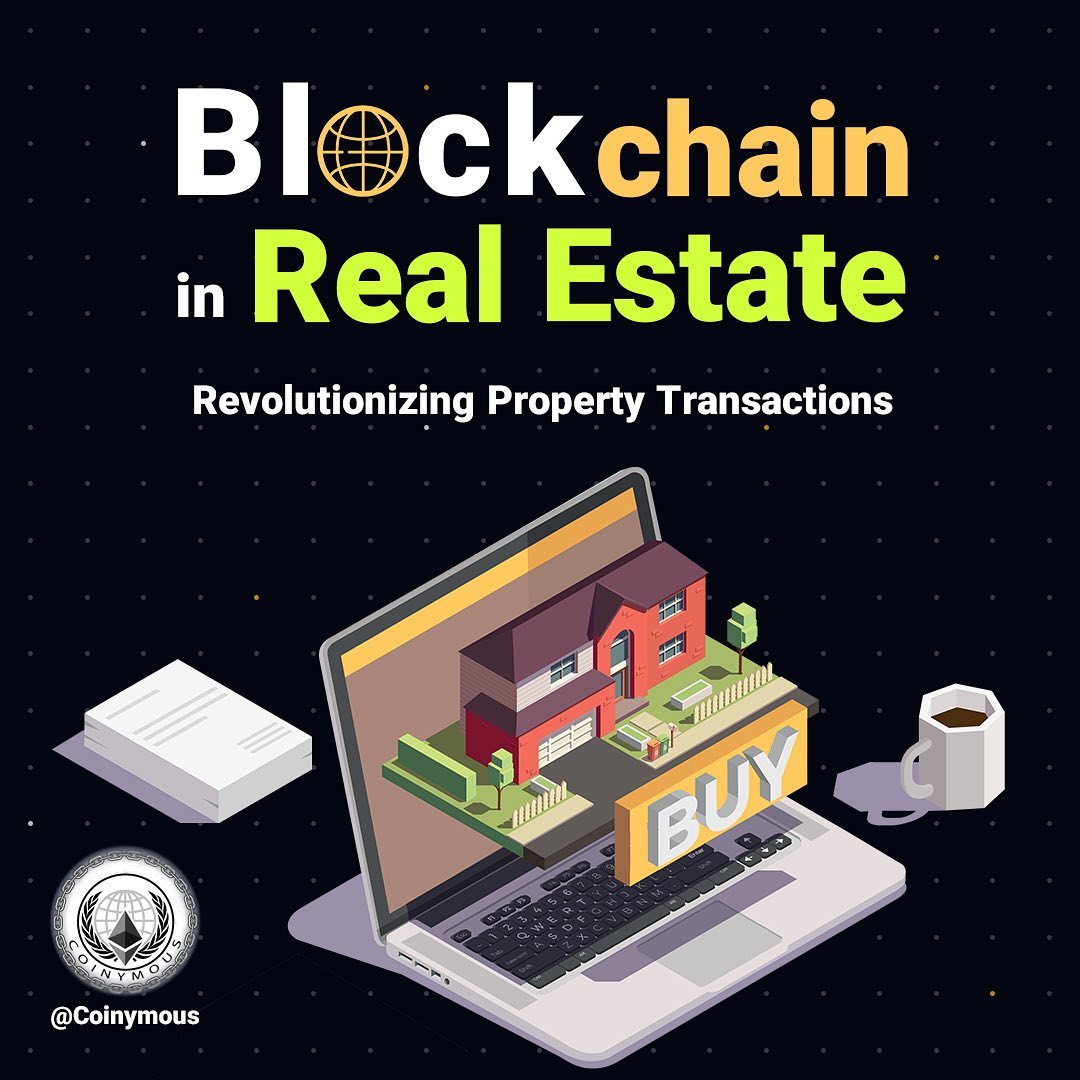Blockchain in Real Estate: Revolutionizing Property Transactions 🏠
Blockchain in real estate is a technology that is transforming property transactions by providing a secure and transparent platform for recording and verifying property ownership, reducing fraud and increasing efficiency in the industry.

Introduction:
In recent years, blockchain technology has emerged as a game-changer in various industries. One sector that stands to benefit immensely from this revolutionary technology is real estate. Blockchain is well-poised to transform property transactions, offering numerous advantages such as increased transparency, efficiency, and security. In this blog post, we will delve into the ways blockchain is revolutionizing the real estate industry and changing the face of property transactions. Let's explore!
Blockchain and Property Ownership:
One of the key areas where blockchain is making a significant impact is property ownership. Historically, proving ownership and transferring property titles have often been complex and lengthy processes. However, with blockchain, the process becomes more streamlined and transparent.
Blockchain enables the creation of a decentralized public ledger where property ownership records are securely stored and validated. This eliminates the need for intermediaries like lawyers and allows for faster and more accurate ownership transfers. Smart contracts, powered by blockchain, can automatically execute transactions, simplifying the entire process by reducing paperwork and minimizing potential disputes.
Enhanced Security and Transparency:
Fraud has long been a concern in the real estate industry. By leveraging blockchain's inherent security features, the risks associated with fraud and tampering can be significantly reduced. Since the data stored on a blockchain network is immutable and encrypted, it becomes nearly impossible for criminals to manipulate property records.
Moreover, blockchain's distributed nature ensures transparency. Multiple copies of the ledger are maintained across a network of computers, making it incredibly difficult for any single entity to manipulate or corrupt data. This helps protect against unauthorized alterations to property records and enhances trust among all parties involved in a transaction.
Efficiency and Cost Reduction:
Real estate transactions typically involve multiple parties, extensive paperwork, and complex processes. Blockchain has the potential to streamline these processes, saving time, and reducing costs.
By digitizing property records on a blockchain, all relevant information can be easily accessible to all stakeholders, eliminating the need for time-consuming manual searches and verifications. This increased accessibility enhances efficiency and expedites transactions.
Furthermore, blockchain removes the need for intermediaries, allowing for peer-to-peer transactions without the involvement of costly third parties. This not only reduces transaction costs but also enables a more seamless and direct interaction between buyers and sellers.
Potential Challenges and Future Outlook:
While the potential of blockchain in real estate is immense, there are a few challenges that need to be addressed. Adoption and implementation on a large scale require industry-wide collaboration, regulatory support, and education.
However, considering the benefits offered by blockchain technology, it is highly likely that the real estate industry will increasingly embrace it. With continued advancements in blockchain and growing awareness of its potential, we can expect to see a significant transformation in how property transactions are conducted in the near future.
Conclusion:
Blockchain technology has emerged as a powerful tool with the potential to revolutionize property transactions in the real estate industry. With increased transparency, improved security, enhanced efficiency, and reduced costs, blockchain offers a new paradigm in property ownership and transfers. As the world continues to digitize, the real estate sector must adapt and capitalize on the opportunities presented by blockchain to create a more efficient, secure, and accessible property market. The future of real estate is here, and blockchain is set to lead the way!